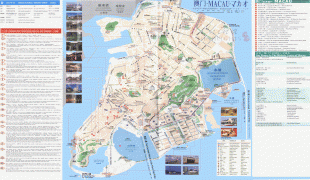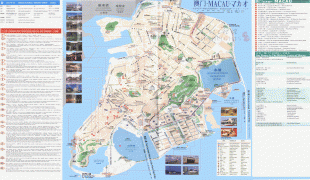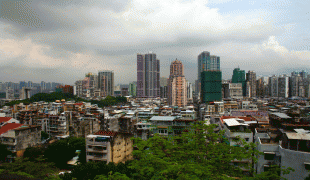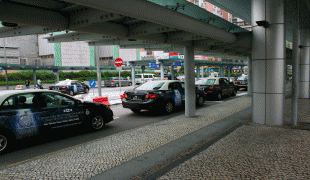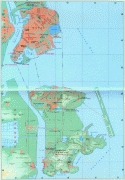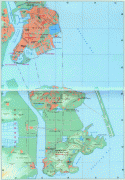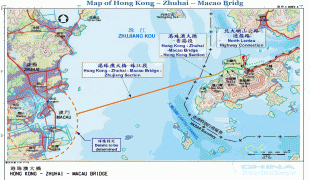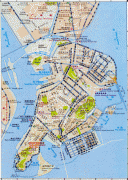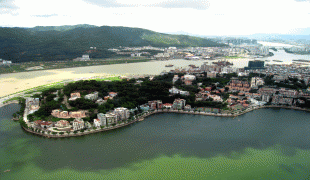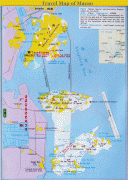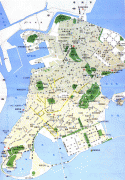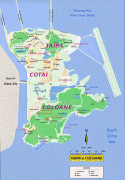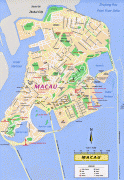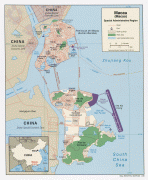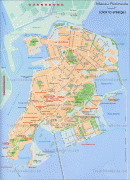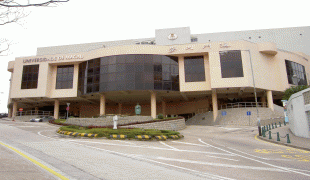Macau (Macau Special Administrative Region)
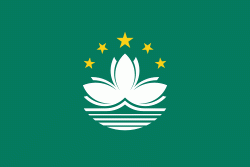 |
 |
Formerly a Portuguese colony, the territory of Portuguese Macau was first leased to Portugal as a trading post by the Ming dynasty in 1557. Portugal paid an annual rent and administered the territory under Chinese sovereignty until 1887. Portugal later gained perpetual colonial rights in the Sino-Portuguese Treaty of Peking. The colony remained under Portuguese rule until 1999, when it was transferred to China. Macau is a special administrative region of China, which maintains separate governing and economic systems from those of mainland China under the principle of "one country, two systems". The unique blend of Portuguese and Chinese architecture in the city's historic centre led to its inscription on the UNESCO World Heritage List in 2005.
Originally a sparsely populated collection of coastal islands, Macau, often referred to as the "Las Vegas of the East", has become a major resort city and a top destination for gambling tourism, with a gambling industry seven times larger than that of Las Vegas. The city has one of the highest per capita incomes in the world, US$43,770 in 2021, and its GDP per capita by purchasing power parity is one of the highest in the world. It has a very high Human Development Index, as calculated by the Macau government, and the fourth-highest life expectancy in the world. The territory is highly urbanised; two-thirds of the total land area is built on land reclaimed from the sea.
The first known written record of the name "Macau", rendered as "Ya/A Ma Gang" (亞/阿-媽/馬-港), is found in a letter dated 20 November 1555. The local inhabitants believed that the sea goddess Matsu (alternatively called A-Ma) had blessed and protected the harbour and called the waters around A-Ma Temple using her name. When Portuguese explorers first arrived in the area and asked for the place name, the locals thought they were asking about the temple and told them it was "Ma Kok" (媽閣). The earliest Portuguese spelling for this was Amaquão. Multiple variations were used until Amacão / Amacao and Macão / Macao became common during the 17th century. The 1911 reform of Portuguese orthography standardised the spelling Macau; however, the use of Macao persisted in English and other European languages.
The Macau Peninsula had many names in Chinese, including Jing'ao (井澳/鏡澳), Haojing (濠鏡), and Haojing'ao (濠鏡澳). The islands Taipa, Coloane, and Hengqin were collectively called Shizimen (十字門). These names would later become Aomen (澳門), Oumún in Cantonese and translating as "bay gate" or "port gate", to refer to the whole territory.







